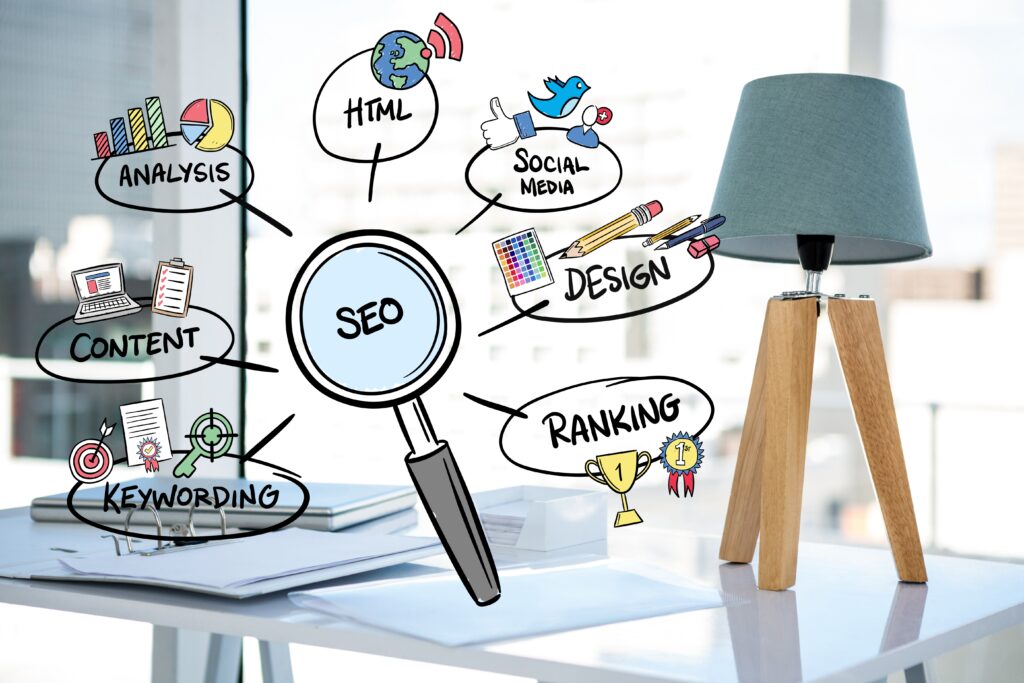Introduction to SEO for SaaS Platforms
In the fast-paced world of Software as a Service (SaaS), having a top-tier product isn’t enough to guarantee success. Your potential customers need to find you first, and that’s where Search Engine Optimization (SEO) comes into play. SEO helps SaaS platforms improve visibility, attract qualified leads, and ultimately drive conversions.
However, SaaS SEO isn’t your run-of-the-mill optimization strategy. SaaS platforms often deal with niche audiences, complex buyer journeys, and highly competitive keywords. Let’s dive into how you can create a winning SEO strategy tailored for SaaS.
Table of Contents
Understanding Your SaaS Audience

Identifying Your Target Customer Personas
Understanding who your customers are is the foundation of any effective SEO strategy. Are they small business owners, enterprise executives, or developers? Creating detailed customer personas allows you to tailor your content and keywords to their specific needs.
Mapping User Intent with Keyword Research
Your users’ search queries typically fall into three categories: informational, navigational, or transactional. For SaaS platforms, most users begin with informational searches, seeking to understand their problem or explore potential solutions. Ensure your content aligns with their intent.
Keyword Research for SaaS Platforms
Long-Tail Keywords vs. Short-Tail Keywords
While short-tail keywords like “project management software” are tempting, they’re often highly competitive. Instead, focus on long-tail keywords like “best project management software for small teams,” which have lower competition and higher conversion potential.
Tools for Effective Keyword Research
Tools like SEMrush, Ahrefs, and Google Keyword Planner can help you identify high-value keywords relevant to your SaaS platform. Use these tools to uncover keywords that align with user intent and have strong search volume.
Prioritizing Keywords Based on Competition and Value
Not all keywords are created equal. Prioritize those that balance search volume with achievable competition levels. Factor in their potential value to your business goals, such as driving sign-ups or demo requests.
Optimizing On-Page SEO for SaaS
Crafting Engaging Meta Titles and Descriptions
Your meta title and description are your SaaS platform’s first impression in search results. Ensure they’re compelling, include your target keyword, and clearly communicate value.
Using Structured Data for Better Visibility
Structured data like FAQ schema can help your SaaS content stand out in search results by providing rich snippets, increasing click-through rates.
The Role of Internal Linking in SaaS Websites
Internal links guide visitors through your content while helping search engines understand your site’s structure. Link related blog posts, feature pages, and case studies to keep users engaged.
Content Marketing Strategy for SaaS SEO
Creating Blogs That Address Customer Pain Points
Blogs are a powerhouse for SaaS SEO. Address your customers’ most pressing questions and pain points in your blog content, and you’ll naturally attract organic traffic.
The Power of Case Studies and Whitepapers
Case studies and whitepapers demonstrate your platform’s real-world impact, building trust and credibility while boosting your SEO rankings.
Leveraging Video Content and Tutorials
Tutorials and explainer videos not only engage users but also rank well on platforms like YouTube, driving traffic back to your site.
Building Backlinks for SaaS Platforms
Outreach Strategies for SaaS Websites
Reach out to authoritative sites within your niche for guest blogging opportunities or link exchanges to improve your domain authority.
Partnering with Complementary Tools and Services
Collaborating with other SaaS providers can help you gain high-quality backlinks while exposing your platform to a wider audience.
Monitoring and Maintaining Link Quality
Use tools like Moz or Ahrefs to regularly audit your backlinks, ensuring they remain relevant and high quality.
Technical SEO Essentials for SaaS
Importance of Website Speed and Performance
A slow website isn’t just frustrating for users—it’s a ranking killer. Optimize your load times to keep both users and search engines happy.
Optimizing for Mobile-First Indexing
With most searches happening on mobile devices, a mobile-friendly design is non-negotiable for SaaS SEO success.
Implementing HTTPS and Security Measures
Trust is key in SaaS, and a secure website (via HTTPS) protects your data and reassures your visitors.
Local SEO for SaaS Platforms
Utilizing Google My Business for SaaS Offices
Even if your SaaS product is global, having a strong local SEO presence can improve credibility and attract regional business opportunities.
Geo-Targeted Landing Pages and Their Benefits
Create location-specific landing pages to cater to local audiences, improving relevance and search rankings.
Tracking and Measuring SEO Success
Key Performance Indicators (KPIs) for SaaS SEO
Metrics like organic traffic, bounce rate, and conversion rates are essential for gauging your SEO success.
Using Analytics Tools to Refine Strategies
Google Analytics and similar tools help you track performance and refine strategies based on real-time data.
A/B Testing for Landing Pages and CTAs
Experiment with different designs and calls-to-action to determine what drives the best results.
Common Mistakes to Avoid in SaaS SEO
Ignoring User Experience
A clunky website won’t keep visitors around. Prioritize UX to maximize your SEO efforts.
Overusing Keywords
Keyword stuffing is outdated and penalized. Focus on natural, meaningful content.
Neglecting Ongoing SEO Updates
SEO is a marathon, not a sprint. Stay ahead by continuously updating and improving your strategy.
Future Trends in SEO for SaaS Platforms
AI-Driven SEO Practices
AI tools like ChatGPT can help analyze and optimize content for search engines.
Voice Search Optimization
With the rise of smart devices, optimizing for voice search is critical to staying competitive.
Enhancing Personalization with SEO
Leverage data to deliver personalized content that resonates with individual users.
Conclusion
SEO for SaaS platforms is about more than just driving traffic—it’s about attracting the right audience, solving their problems, and converting them into loyal customers. With the right strategies, your SaaS platform can stand out in a crowded digital landscape.
FAQs
1. What makes SaaS SEO different from traditional SEO?
SaaS SEO often focuses on niche audiences, longer buyer journeys, and technical complexities, requiring a tailored approach.
2. How do I choose the right keywords for my SaaS business?
Focus on long-tail keywords relevant to your product and audience. Use tools like SEMrush or Ahrefs for in-depth analysis.
3. Is local SEO important for SaaS companies?
Yes! Local SEO helps establish credibility and attract region-specific customers or partners.
4. How long does it take to see results from SaaS SEO?
SEO is a long-term game; expect noticeable results within 3-6 months of consistent effort.
5. What’s the role of content marketing in SaaS SEO?
Content marketing attracts, informs, and converts potential customers, playing a crucial role in your SaaS SEO strategy.



